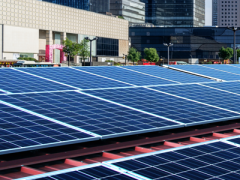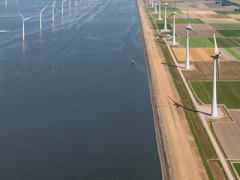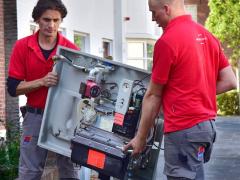Extending bioenergy towards smart biomass use Issues of social acceptance at Park Cuijk, The Netherlands
While the share of bioenergy in the overall energy supply has increased over the last decade, its social acceptance is fragile, mainly due to concerns about negative sustainability impacts. In this paper, we will investigate to what extent the extension of bioenergy towards ‘smart’ or ‘cascaded’ biomass use enhances a project’s social acceptance. Smart use involves the prioritised use of biomass for food and materials.
We found that issues of social acceptance changed rather than diminished when entrepreneurs extended a project’s focus from biopower to smart biomass use. This change can be observed in relation to all three conceptual categories: market acceptance, sociopolitical acceptance and community acceptance.
We conclude that the extension from bioenergy towards smart biomass use does not necessarily enhance a project’s social acceptance. Compared to the social acceptance of renewable energy innovation, the social acceptance of smart biomass use is fuzzier, more open to recursive patterns and more dependent upon inter-firm trust. Importantly, embracing the principle of smart biomass use instigates the question of how biomass use can be optimised—either with or without purposes related to energy. We suggest further comparative case study research into the social acceptance dynamics of smart biomass use, for which we identify the following variables as relevant: the type of bioenergy, the sector that takes the initiative, the greenfield character of the project and the complexity of the smart use scheme.
Open Access article
Auteurs
Kenmerken
- Publicatietitel
- Extending bioenergy towards smart biomass use Issues of social acceptance at Park Cuijk, The Netherlands
- Publicatiedatum
- 22 Juli 2015
- Publicatie type
- Publicatie
- Tijdschrift
- Energy, Sustainability and Society
- Productnummer
- 1855




